6th Coronavirus Case in Croatia, Symptoms Mild, Close Relative of Existing Patient
A sixth case of coronavirus in Croatia has been confirmed, reports Index.hr on February 29, 2020.
The sixth case of coronavirus in Croatia has been confirmed. This is a man from Rijeka who is in close contact with those already ill from Rijeka. According to unofficial information, it is the brother of a woman who became ill after her husband. They are all in good condition and have milder symptoms.
"We have 176 tested so far, two findings are still pending. We have another positive finding. It is a close relative of patients from Rijeka. So everything is under control, it has not expanded as it is spreading across Europe. We have an increase of 200 patients in Italy, 20 patients in France, 19 in Germany ... I thank all Croatian citizens who are in isolation and quarantine ... That is about 120 contacts and 1151 persons under surveillance," Health Minister Vili Beros said.
"The person in Rijeka is feeling well, has mild symptoms. There is no cause for concern. The remaining two positives in Rijeka are also doing well," said Alemka Markotic.
The Croatian Ministry of Health has released some information and contact numbers, as well as sources to find updates to the situation, which you can find here.
Two eminent Croatian scientists have recently weighed in with their thoughts and expert advice.
Croatian Scientist Ivan Djikic on Coronavirus: Don't Spread Panic.
Croatian Professor Igor Rudan Addresses Media on Coronavirus.
We will continue to keep you updated with significant developments on the spread of coronavirus in Croatia with dedicated articles on any key developments, but for a rolling update of developments in Croatia and around the world, follow Forrest Stilin's live updates here.
President Milanović Advises Masters of Law to Be Critical of Politics
ZAGREB, February 29, 2020 - President Zoran Milanović on Saturday attended a graduation ceremony at the Zagreb Faculty of Law and told the masters of law that in their professional life they should make a contribution, build their knowledge, ask questions and be critical of politics.
Speaking as an alumnus of the school, Milanovic said, "I went my own way, thinking that I was fighting against injustice, and I still feel that, but on that path, as a politician, you make injustices without realising it."
He also spoke of the emigration of young people, saying that when he graduated in 1990, the bulk of young people wanted to go abroad too.
"That's human and curious. That's a quest for knowledge and for improvement, with the desire and the ambition to come back. In that I see a challenge for Croatia, because people are leaving en masse, but also coming back. One should be careful and create all the conditions to make people stay, without spreading a moral panic."
Countries like Lithuania and Poland have large numbers of emigrants but haven't collapsed because of that and are considered examples of a successful transition, Milanović said.
"Let's look around us, let's learn, let's not jump to conclusions, let's be sceptical but loyal, committed and faithful to ideals and our country," he added.
Dean Igor Gliha said three of Croatia's five presidents were lawyers and that eight of the 12 prime ministers studied law.
More politics news can be found in the dedicated section.
Croatia Celebrating 50 years of Francophony
ZAGREB, February 29, 2020 - This year's Francophone Film Month and a special programme marking the 50th anniversary of Francophony will open with film screenings in Zagreb's Tuškanac cinema on March 3.
Half a century ago, more than 20 countries and governments signed an agreement on the establishment of the International Organisation of la Francophonie, which promotes the French language and francophone cultures and today brings together 88 member countries and governments.
The French language and culture will be celebrated with events to be organised by the embassies of Belgium, Canada, France, Morocco and Switzerland, the French Alliance network in Croatia and numerous associations and Croatian institutions.
The event's programme, to be staged in 11 Croatian cities in the form of 100 events to be organised by 30 partners, features francophone films, music, fashion, theatre and flash mobbing.
On International Francophony Day, March 20, the central event of the Month of Francophony will take place at noon in Zagreb's Zrinjevac park as well as in 22 other central and eastern European countries - a major flash mob for all lovers of French culture wishing to demonstrate their love of the French language and francophone values.
The French Embassy and the French Institute will organise two meetings with world-renowned linguist Bernard Cerquiglini - at the French Institute in Zagreb on March 25 and at the City Library in Zadar on March 26.
More news about relations between Croatia and France can be found in the Politics section.
Skraping Pasman: 15th Edition in Less Than One Week!
February the 29th, 2020 - The much loved Skraping is coming back for its fifteenth edition on the picturesque island of Pasman - and it's right around the corner.
The little township of Tkon on the island of Pasman is extremely busy these days, just one week before Croatia’s most recognisable, original trekking race is set to take place. Like every year so far, it happens on the first Saturday of March.
''Skrapa'' is the colloquial name for cliff or rock along an indented sea coast, and the verb was coined to illustrate the essence of this unique race.
Originally, Skraping was conceived as a recreational event that would not only challenge amateurs in need of a test of their physical form and competitive spirit, but primarily as an event that would give the otherwise peaceful and calm atmosphere of the island where almost nothing happens before the tourist season a little shake up.
Its originality and the genuine engagement of local enthusiasts have well and truly outgrown the initial idea behind Skraping. Skraping participants from many countries keep coming back, the fame of Skraping has spread worldwide with a wonderful result of its own - it has not only become Croatia’s biggest and most original trekking event, it has become an efficient promoter of Croatian tourism much before the real beginning of the tourist season.
Additionally, there are various events organised for the occasion throughout the whole week to mark the event, including music, fun and the traditional Fair of Island Products, a certified trade mark assigned to small family businesses from 24 Croatian islands that manufacture products made of ecological, locally grown ingredients.
If you're not quite up for hopping from one cliff to another while finding your way through groves and narrow dirt roads for some 45 kilometres, you are offered other options. The ''Challenger Race'’ is just 25 kilometres long, the ''Active Race'' is only 12 kilometres long with a good part of it allowing for a comfortable walk and some gorgeous panoramic views from several hilltops. And then there is the ''Family Race'' option, a leisurely walk and sightseeing for families with kids and pets. So, come on, you must be fit enough for at least one of these options! If you are, click here to register.
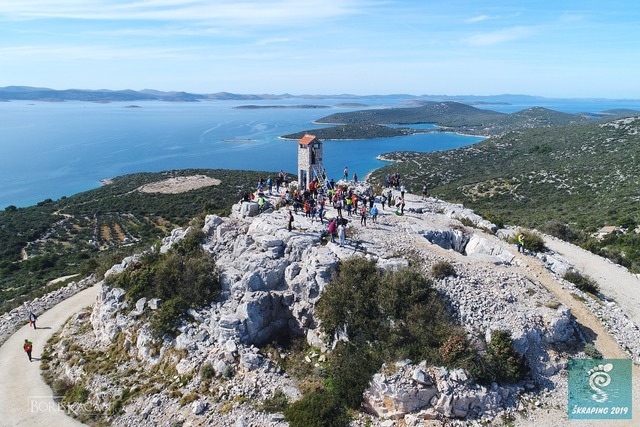
If you do go and you decide stay until the next day, you can assist a very, very special event that generally belongs to the category ''Cute!''. On Sunday morning, that is, some 150 children from several pre-schools in the area will zealously try to win the ''Skrapic'' (little Skraping) designed for the kids to add to their education about nature, the importance of leading a healthy life and to help stoke a competitive spirit. Just look at them!
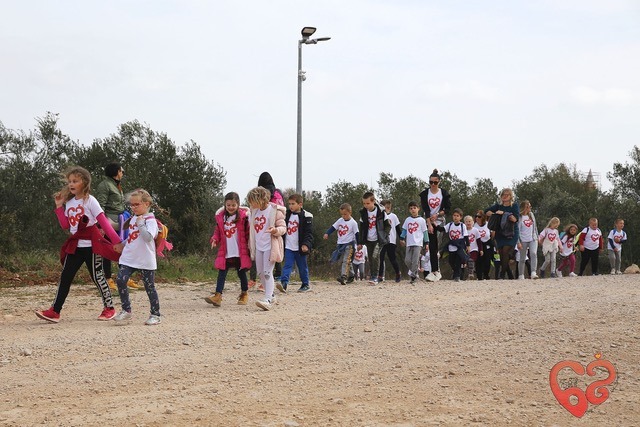
All in all, more than 1500 active participants are expected for Skraping 2020. These are typically busy days, also traffic wise, but there are extended ferry lines from Biograd na Moru, about which you can learn here.
You can also leave your car in Biograd na Moru and avoid the fare, at the designated parking space of the Ilirija Hotels, right here.
So, there you go! Pack you backpacks and go and engage in something worth bragging about. Your friends (and especially people that don't like you!) will be impressed. And so will you, believe me!
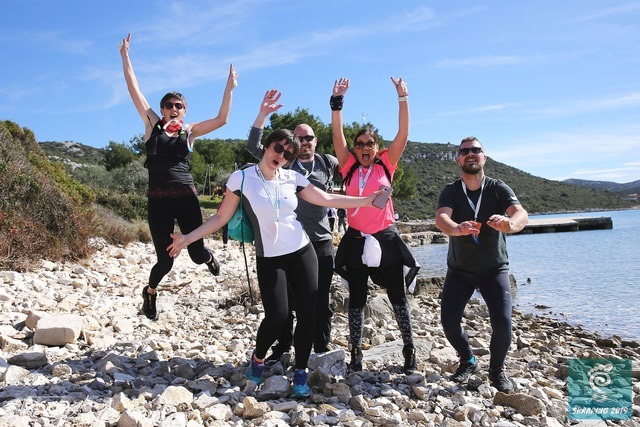
For more on various events across Croatia, follow our dedicated lifestyle page.
GLAS Launches Its Election Platform
ZAGREB, February 29, 2020 - The GLAS party will run in the coming parliamentary elections with the platform "Green development - free development", party leader Anka Mrak Taritaš said on Saturday.
Speaking at a news conference at which this opposition party presented its coordinators for ten constituencies, Mrak Taritaš recalled initiatives launched by GLAS, including a proposal for a revision of the Vatican agreements, a proposal for the adoption of a resolution on the climate and environmental crisis, and proposals for a more efficient judiciary.
"Green development is a topic that cannot be ignored, climate change and its consequences have made us realise that we have to make big adjustments. Those adjustments are on the one side dangerous and on the other they create new opportunities for our economy and we must be prepared to use them," said Mrak-Taritaš.
She said that the key topic of the second part of the party platform was personal freedoms.
"The right to choice, a secular state, equality before the law and further progress in realising one's full potential for all people are the main elements of our policy," Mrak-Taritaš said, adding that the party looks forward to diversity.
GLAS is willing to cooperate with all parties that share its values, she said.
More politics news can be found in the dedicated section.
Presidential Candidate Miroslav Škoro Founds New Political Party
February 29, 2020 - Miroslav Škoro, a candidate in the recently held presidential elections in Croatia, announced today that he is to found his political party, called "Miroslav Škoro Homeland Movement".
After his quite successful bid at the presidential elections, where he managed to take the third-highest number of votes (and miss the runoff election by a very small margin of votes), Miroslav Škoro often hinted at his plans to start a new political party in time for the upcoming parliamentary elections. And that is exactly what he has announced to the public today, in Panorama Hotel in Zagreb, where he presented the new political party in Croatia: Miroslav Škoro Homeland Movement.
He's insistent that it's not just a party, rather a movement (which is what the name also implies), and that he's starting a party not because he wants to, but because he has to, as the situation in Croatia is so dire. He took the opportunity in his opening speech to tell anyone who wants to get into his party so they'd be able to sell their votes later to leave the room, as there will not be room for corruption in his party.
In the speech, he also repeated most of what he stood for during his presidential campaign: the strong "sovereignist" policies, including the insistence on 'maintaining the right to decide who gets to enter the Republic of Croatia'. To that he adds that we don't need further divides, we need unity, that this is not the country for which the fighters fought during the Homeland war, and that we are a country built on the blood, tears and terror of the Homeland War, in which life starts at conception, and each child should have a father and a mother. As one of his key political goals, he recognizes the attempt to decry all totalitarian regimes, including the communist regime.
Most people who are supporting Škoro as he founds his party are former associates of Branimir Glavaš, former army general during the Homeland war, former Member of the Parliament who's been indicted (and found guilty, with verdicts being overturned later) of war crimes in Osijek.
Although the party is dubbed as a movement, none of the parties that supported Škoro in the presidential bid hasn't officially joined the Homeland Movement. MOST, Hrvatski suverenisti, and Zlatko Hasanbegović's party are close to Škoro politically and will probably negotiate some kind of coalition for the parliamentary elections.
Trogir, a Tourist Destination Transformed Thanks to the Ciovo Bridge
February 29, 2020 - As tourist destinations grapple with more and more tourist traffic, how the new Ciovo bridge returned Trogir to its former glory without the Ciovo traffic.
The Dalmatian coast is blessed with seemingly endless picturesque stone, walled towns and cities, each one a must-see - Dubrovnik, Split, Trogir, Primosten, Sibenik and Zadar, to name but a few. But come back in the peak season, and the experience will be somewhat different. As much as I love Omis and all its fascinating history, I have better things to do with my summer than sitting in traffic trying to get there, and Dubrovnik is not an option for me after late May. And until two summers ago, there was another name that I would have included in that list of gorgeous destinations to be avoided in peak season.
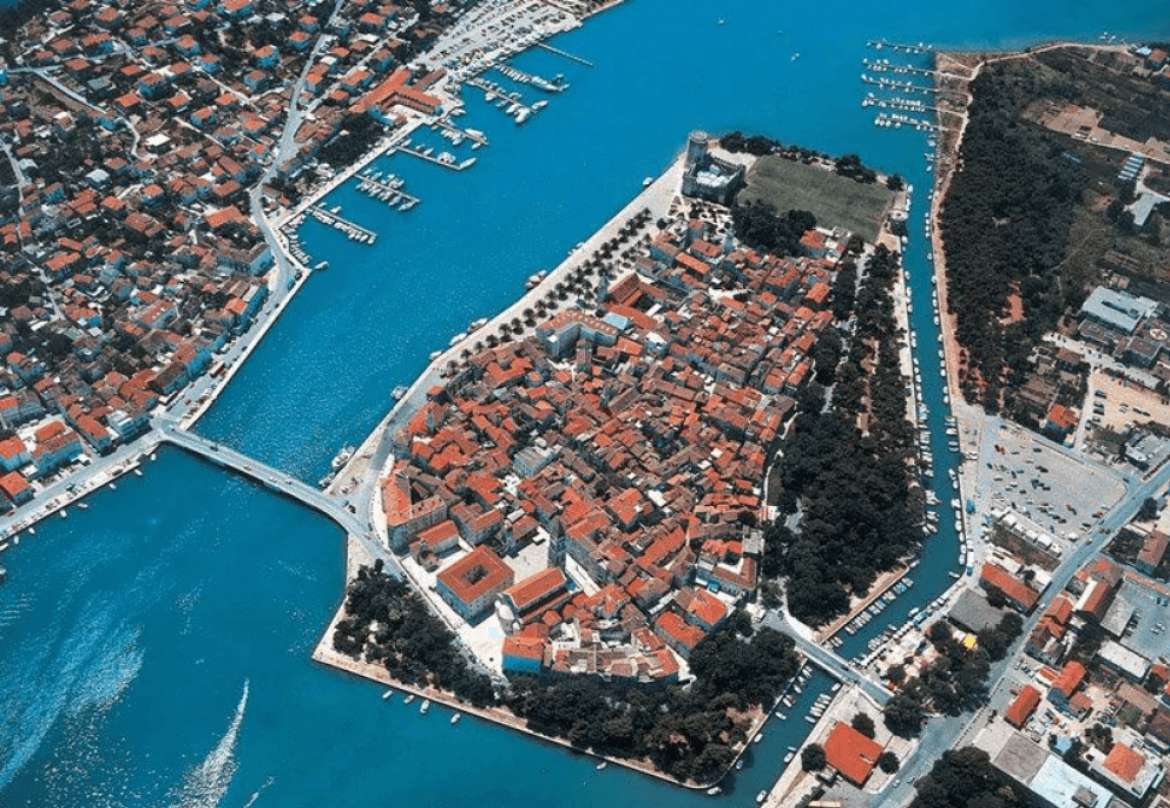
The UNESCO World Heritage Site of Trogir.
But that all changed in the summer of 2018.
Just a few minutes from Split Airport, and the ideal welcome and departure overnight stay for a Dalmatian holiday with no airport transfer stress, the old town of Trogir is one of Croatia's cutest and most compact heritage destinations. Itself a small island, its tourism fate has been inextricably linked to the larger island of Ciovo in recent decades. Tourism in Ciovo has exploded in recent years, and there has been considerable construction of new apartments, with the only access by land across the small Venetian bridge next to Trogir old town.
The result was tourism chaos, huge queues, and much frustration for those heading to Ciovo and Trogir alike.
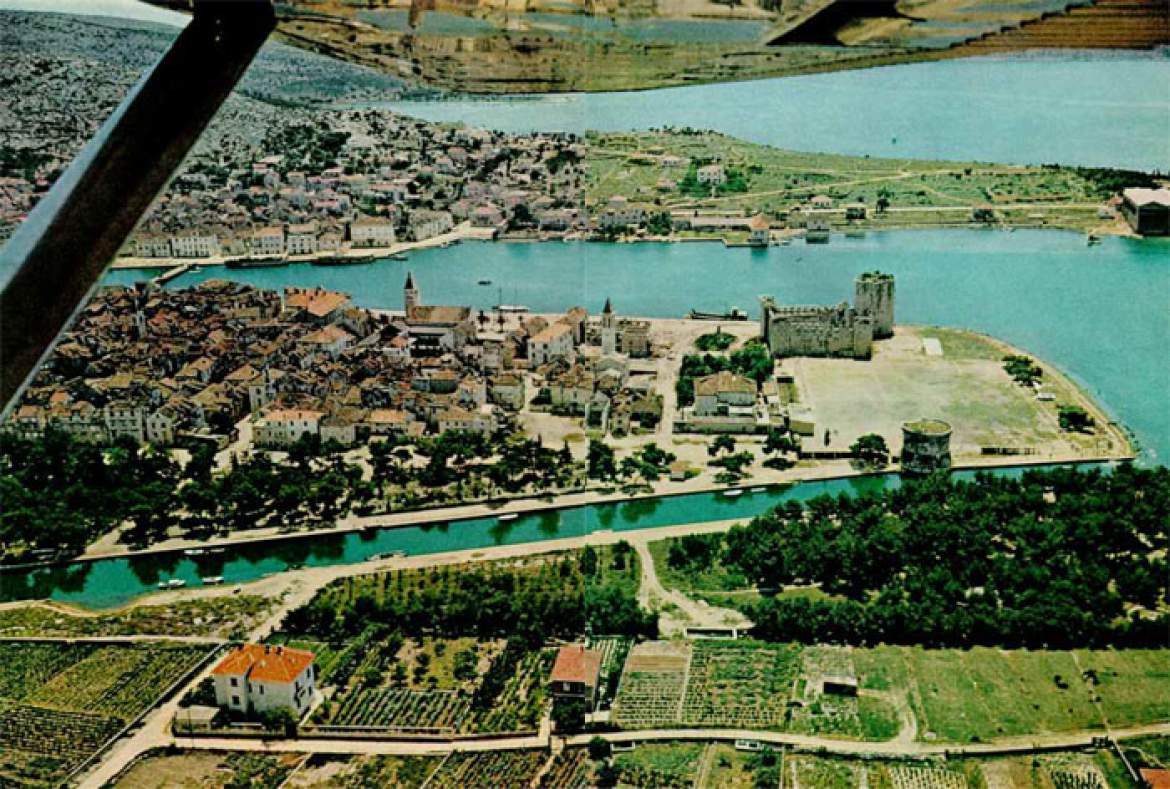
This 1962 photo above is a nice comparison to the more recent one below. The lovely old town of Trogir has not changed that much at all in almost 60 years, while across the water on Ciovo, the tourism expansion has been significant.
The one thing that certainly did not change, despite decades of talk and promises, was the infrastructure. The only Ciovo bridge access was the small original crossing. If another solution could be found to rid Trogir of the considerable Ciovo through traffic, could we see a return to the Trogir as It Once Was?
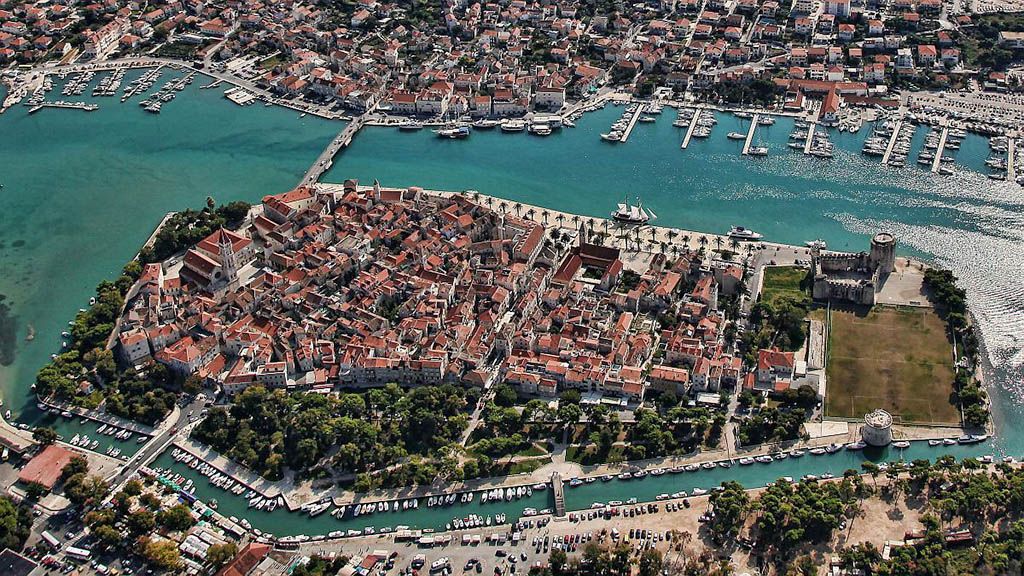
A new Ciovo bridge was finally announced and, after several false starts, Prime Minister Andrej Plenkovic opened the new 207 million kuna bridge in July 2018, 85% of which was financed by the EU.
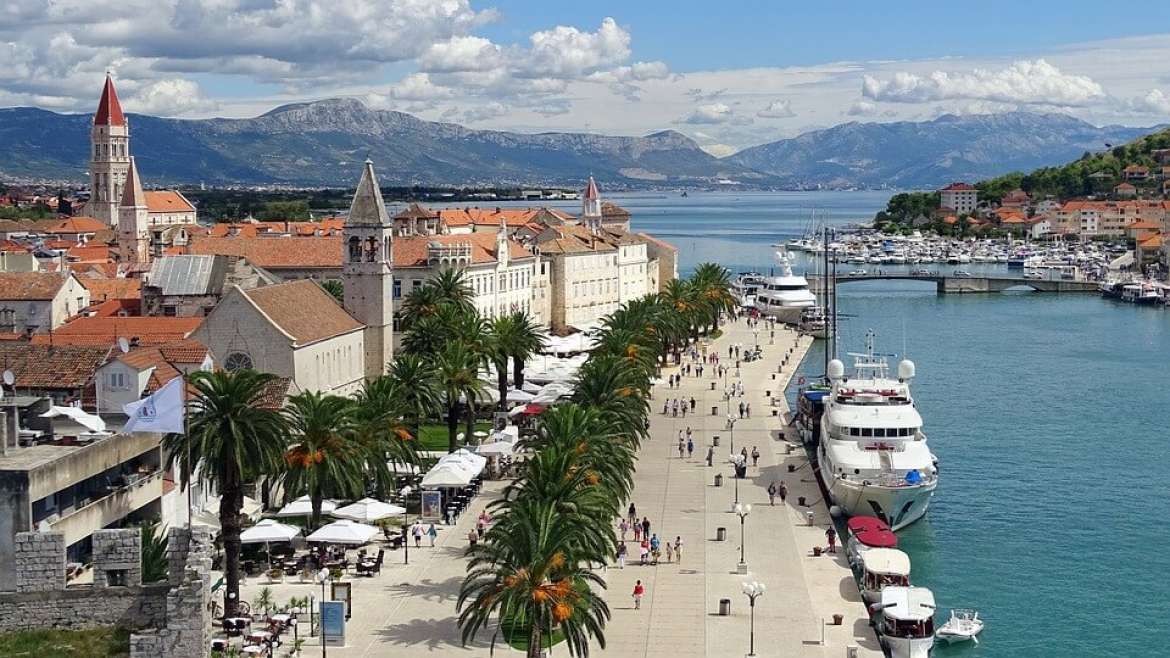
You can get an idea of the before and after from these two photos, above and below.
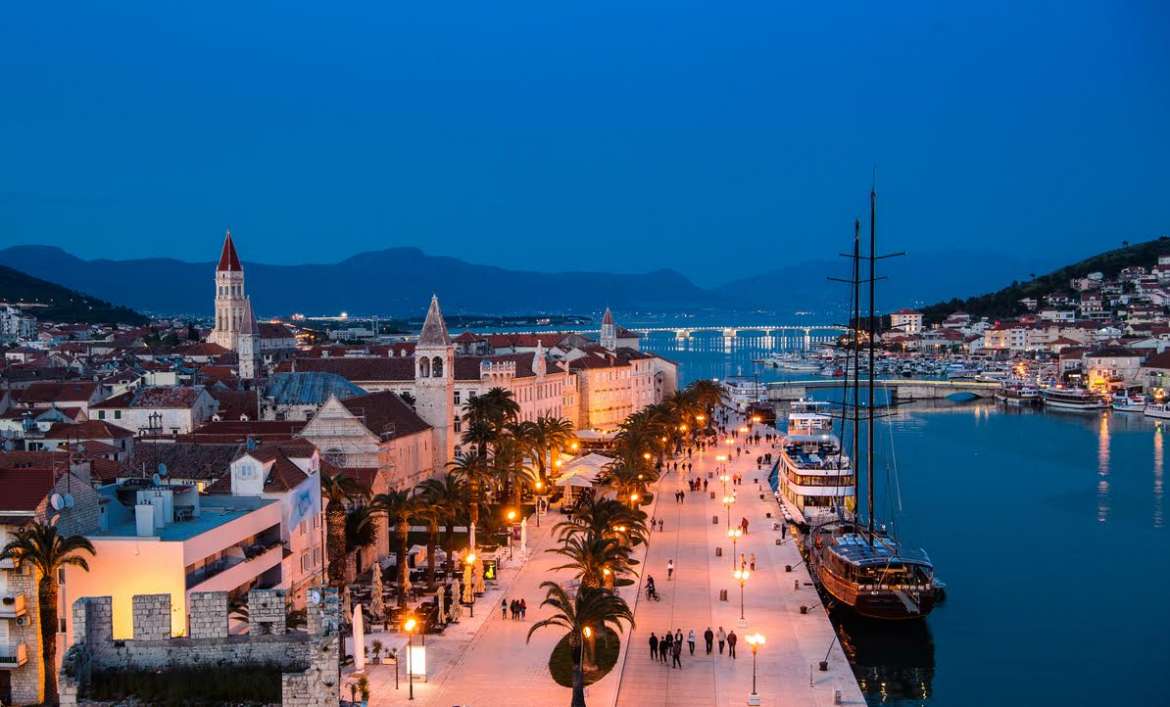
The new bridge, which is between Trogir and both Split and its airport, means that all that traffic which used to clog up Trogir in season, does not even come close to the town, heading straight across the new Ciovo bridge, leaving locals and Trogir tourists who want to pop over to Ciovo along the old bridge with a much more pleasant experience.
Trogir as it once was.
Trogir Mayor Ante Bilic told TCN not only about the difference the new bridge has made, but what other traffic improvements are in the works:
The new bridge has completely changed how Trogir functions, especially during the tourist season. It's going to be 2 years in July since the grand opening, and we've almost forgotten how our lives were complicated on a daily basis before the bridge was built. Still, we are very thankful for this important traffic solution which made our lives easier and with more quality, not to mention how much more convenient it is for thousands of tourists visiting Trogir.
I believe the new bridge was also a symbolic beginning of a new era for our town. Trogir, of course, needs more traffic investments and solutions to make it even more seamless. Our partners such as Hrvatske Ceste and Županijske Ceste have some great new plans for us in the foreseeable future. Firstly, the reconstruction of the town's western entrance, via Seget, which is a priority and then the main Čiovo road, from the old Bridge to Slatine. Maybe the most interesting project is making the old stone bridge a pedestrian area and building a new, small bridge starting from the bus station, that will connect the mainland with the old town peninsula. For sure, we have solved our critical traffic problem with the new Čiovo bridge but we are looking forward to new traffic projects.
Excellent stuff, and exciting times for Trogir, which recently launched its new branding, Trogir, Marked by Masters.
TCN, in association with the Trogir Tourist Board, will be covering this exciting destination in greater detail throughout 2020, and you can follow the latest on our dedicated TCN Trogir page.
Tomislav Ruszkowski, a Whiskey Professional of Zagreb
February 29, 2020 - There is a corner of Zagreb which is forever Scotland thanks to the whiskey passion of Tomislav Ruszkowski.
February, not such a cold month of the year anymore, yet whiskey lovers prefer to stay warm while tasting most exclusive and unique whiskeys. At the Bornstein Wine Bar in Zagreb, Tomislav Ruszkowski holds a whiskey evening once a month. In the last meeting, held on the February 24, 2020, the main topic was the Scottish island Islay and the considerable goodness it provides.
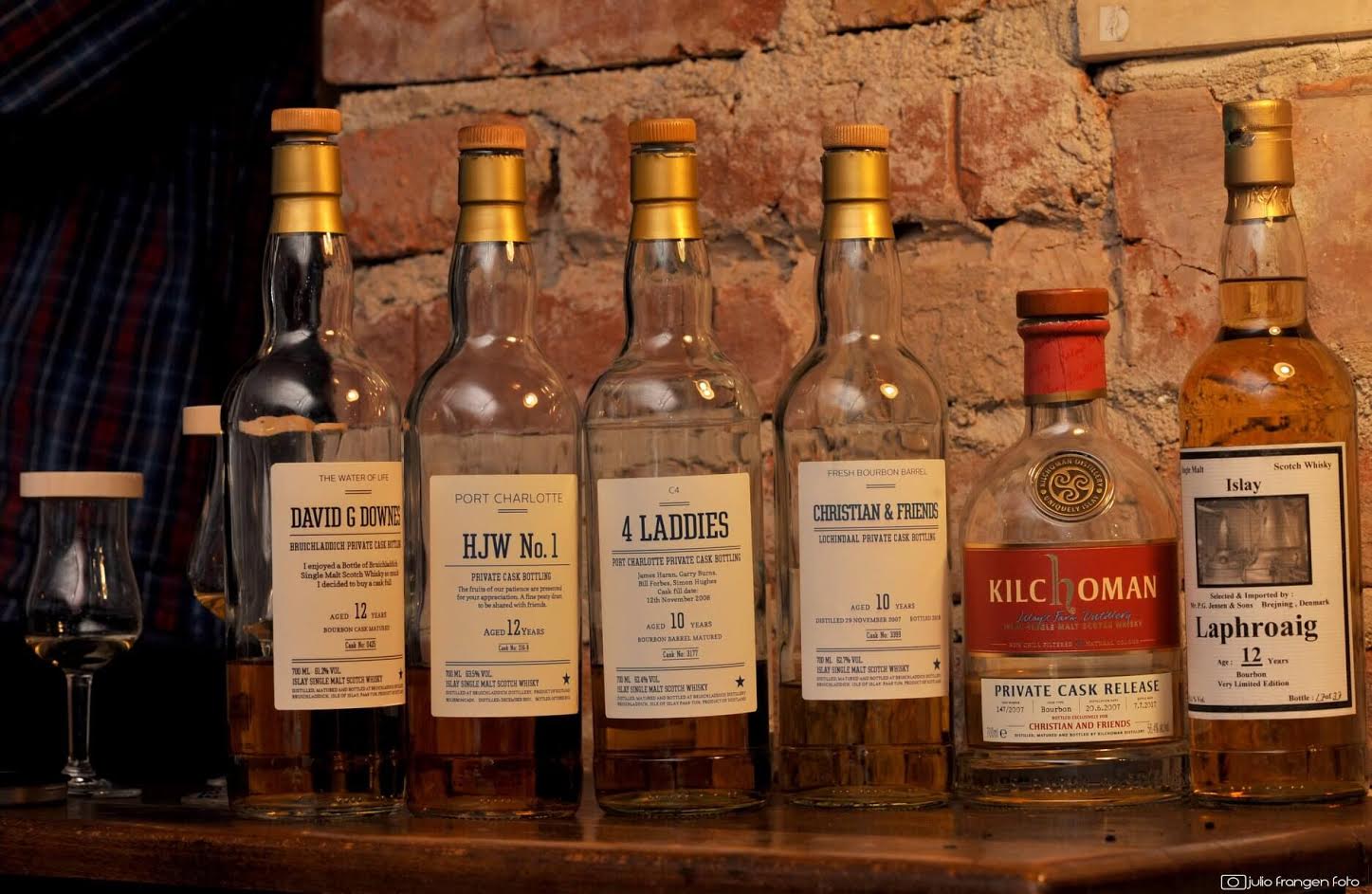
When you enter the wine bar, you enter a different atmosphere: dim lighting, slow music, chatting in the distance, old bottles of wine all around. On each table for each person, there are five glasses carefully filled with various whiskeys, covered with a wooden cap so that whiskeys do not lose their quality. As the evening progresses, Tomislav Ruszkowski explains the content of every glass. In an educative and intriguing way, he talks about the history behind every bottle and barrel. Guests, who are mostly friends of Ruszkowski, try every whiskey, make a comparison between them, comment, and enjoy every breath of those rare specialties.
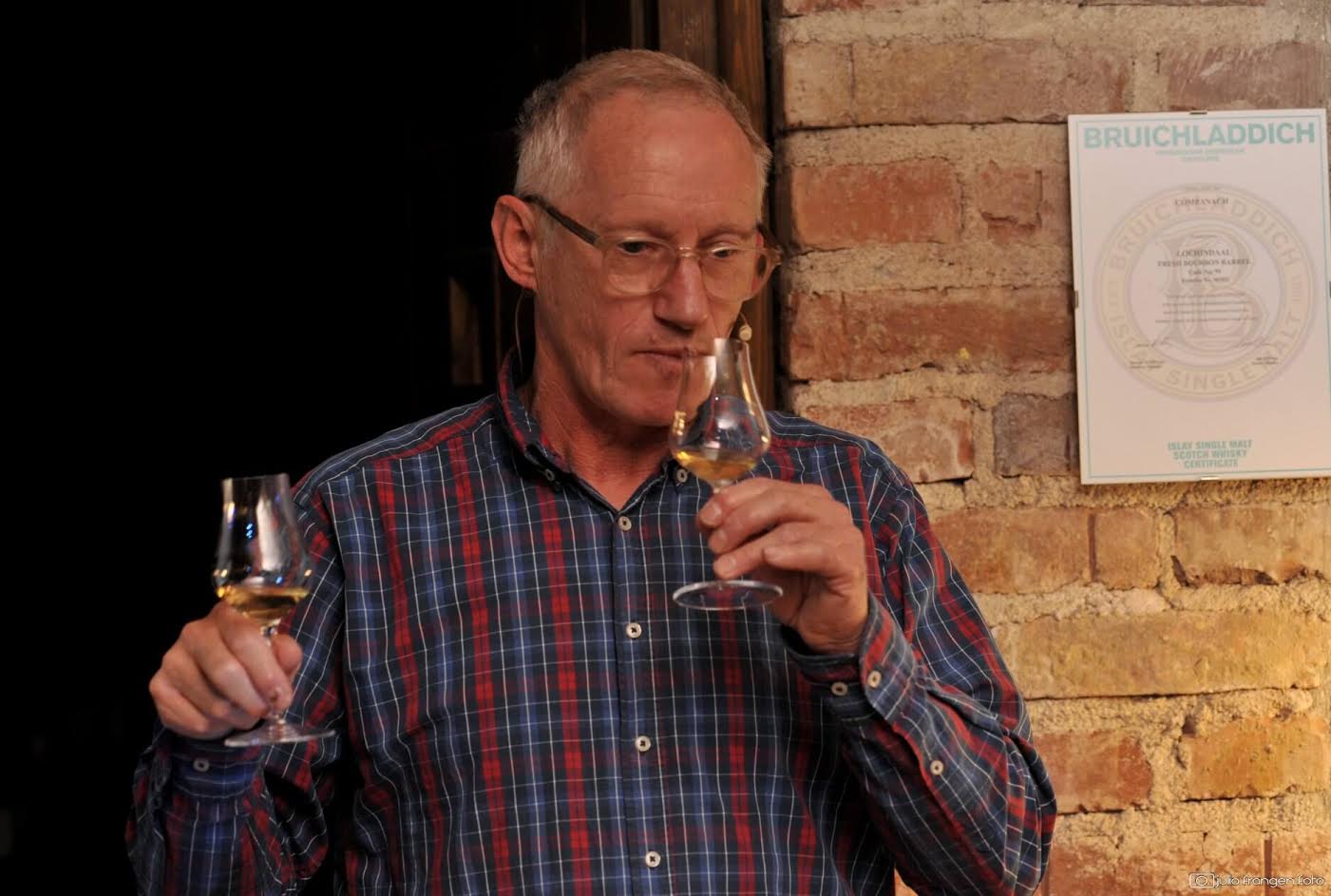
During a break in the presentation, I got a chance to talk to Tomislav Ruszkowski personally.
Where does your love of whiskey come from?
Many years ago, at a Christmas Eve family gathering, my father opened a bottle of Single Malt whiskey. Until that day, we had tried Ballantines, Johnnie Walker, etc., but this fifteen-year-old whiskey was extraordinary. In the year 2003, I started to dig more into this, and that evening was the reason. This whole domain of Single Malt whiskeys has many organoleptic combinations and beauty. But Scottish whiskeys aren't just that, they are also about the people who are making them, the nature, history, stories...
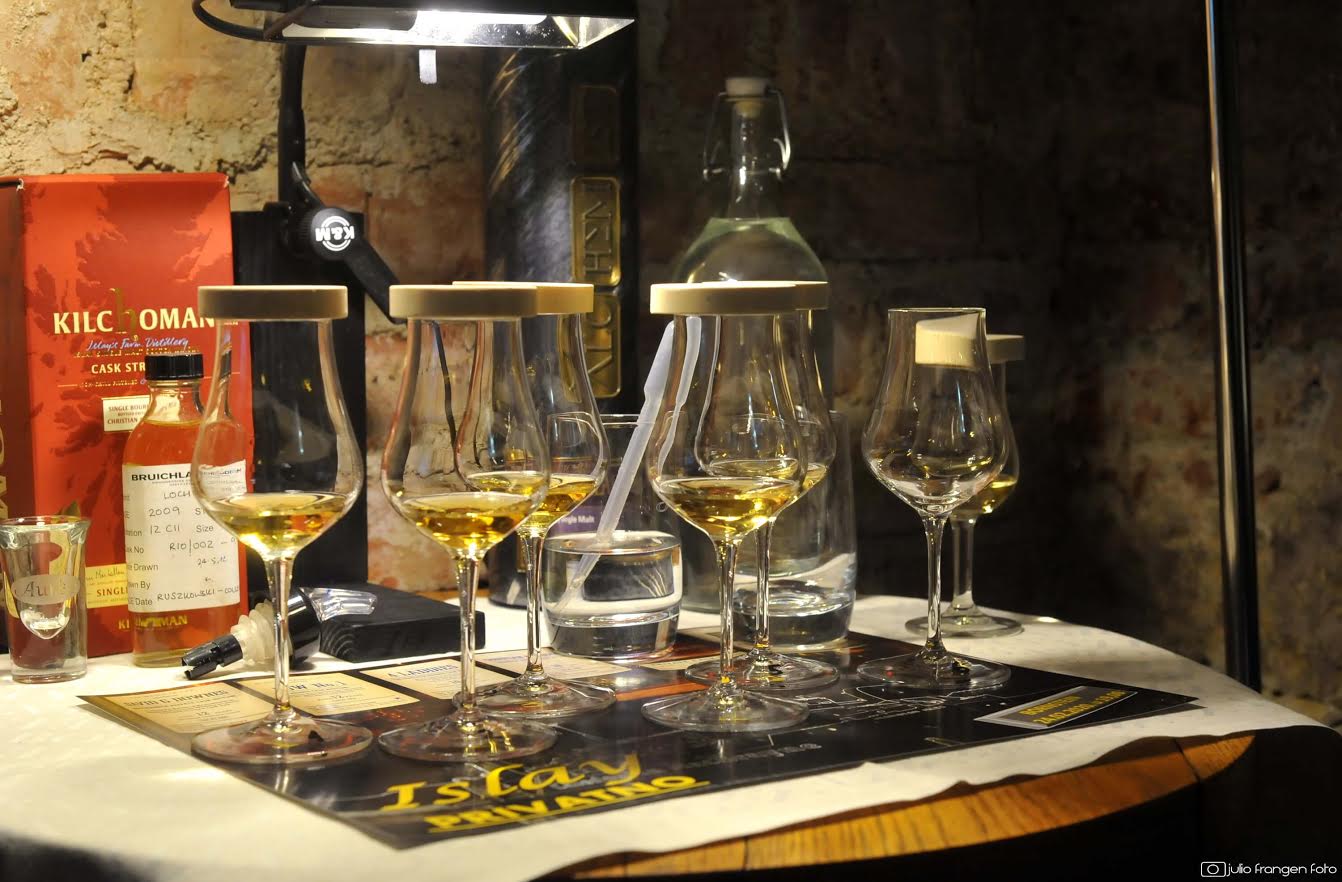
Are you self-taught, or did you attend presentations of other professionals?
When I first get involved in this story, there weren't any presentations I could learn from. But I traveled a lot (I try to go to Scotland at least once a year), so I learned a lot from the owners of the distilleries, I have read a lot of books, and of course, I use the Internet as an inexhaustible source of information. Now I love to attend other professional lectures because there is always room for more knowledge. I know a lot about this topic, but I like to discover additional fine details. The late Silvano Samaroli, the greatest whiskey persona, said he is more attracted to the imperfection of some whiskey than perfection. Because perfect is perfect. Flaws are the things that lead you to new worlds.
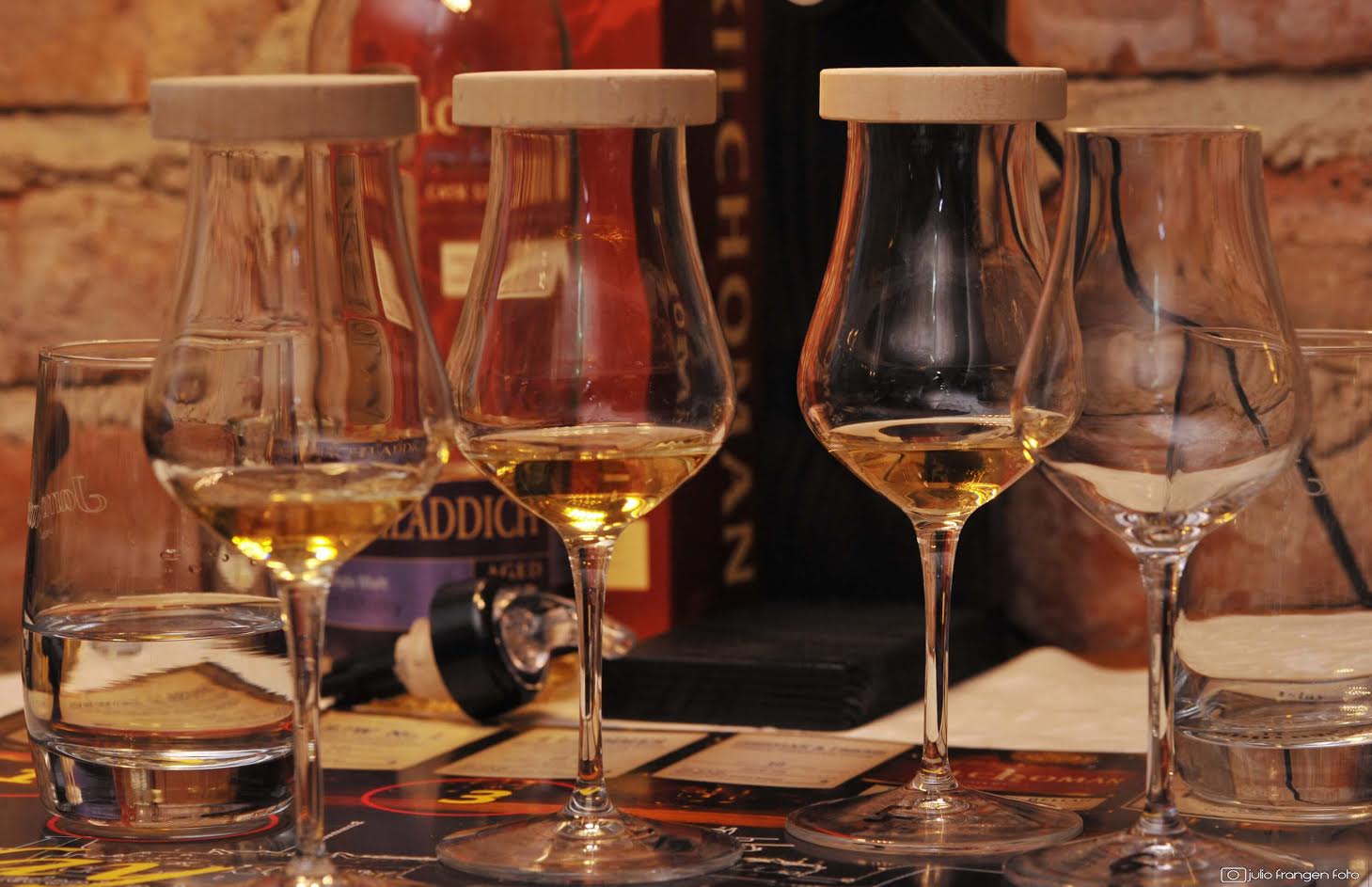
Tell us the story about your presentations in Zagreb and how they started?
The Whiskey Fair here in Zagreb demonstrated that many people are interested in that specific drink. I held a couple of presentations at this Fair, but as the interest grew, I decided to begin my own evenings here in Bornstein. I started with a group of ten people, while now 35 people are the usual number of guests. Of course, there are plenty of topics connected with Scottish whiskeys, so I always try to introduce people to them in an intriguing way. It is a challenge for me to make these presentations interesting enough for people who attend them, especially if they are new to this world. In addition to Zagreb, I have held presentations in Rijeka, Istria, and Italy.
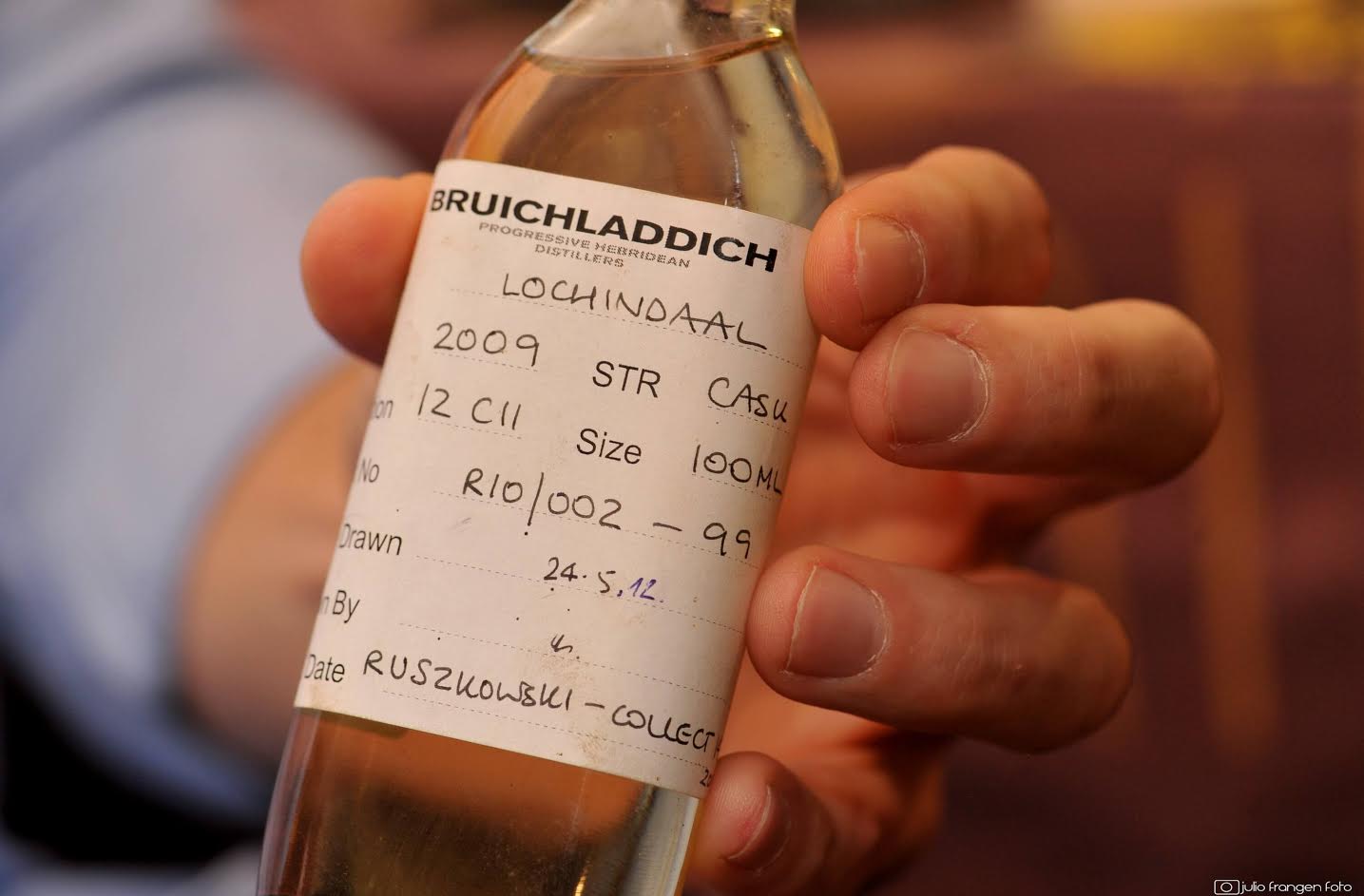
When in Scotland, which distillery is a must-visit? Do you have a favourite you are always returning to, or do you visit a different distillery every time?
My first journey was to the island Islay, to the distillery Ardberg. We had to change our plane three times, three times the plane was late. There was a terrible storm. So I guess a visit to this distillery will always remain in my memory. But to be honest, the whole island, all of these distilleries produce such high-quality whiskey that it is very hard to choose.
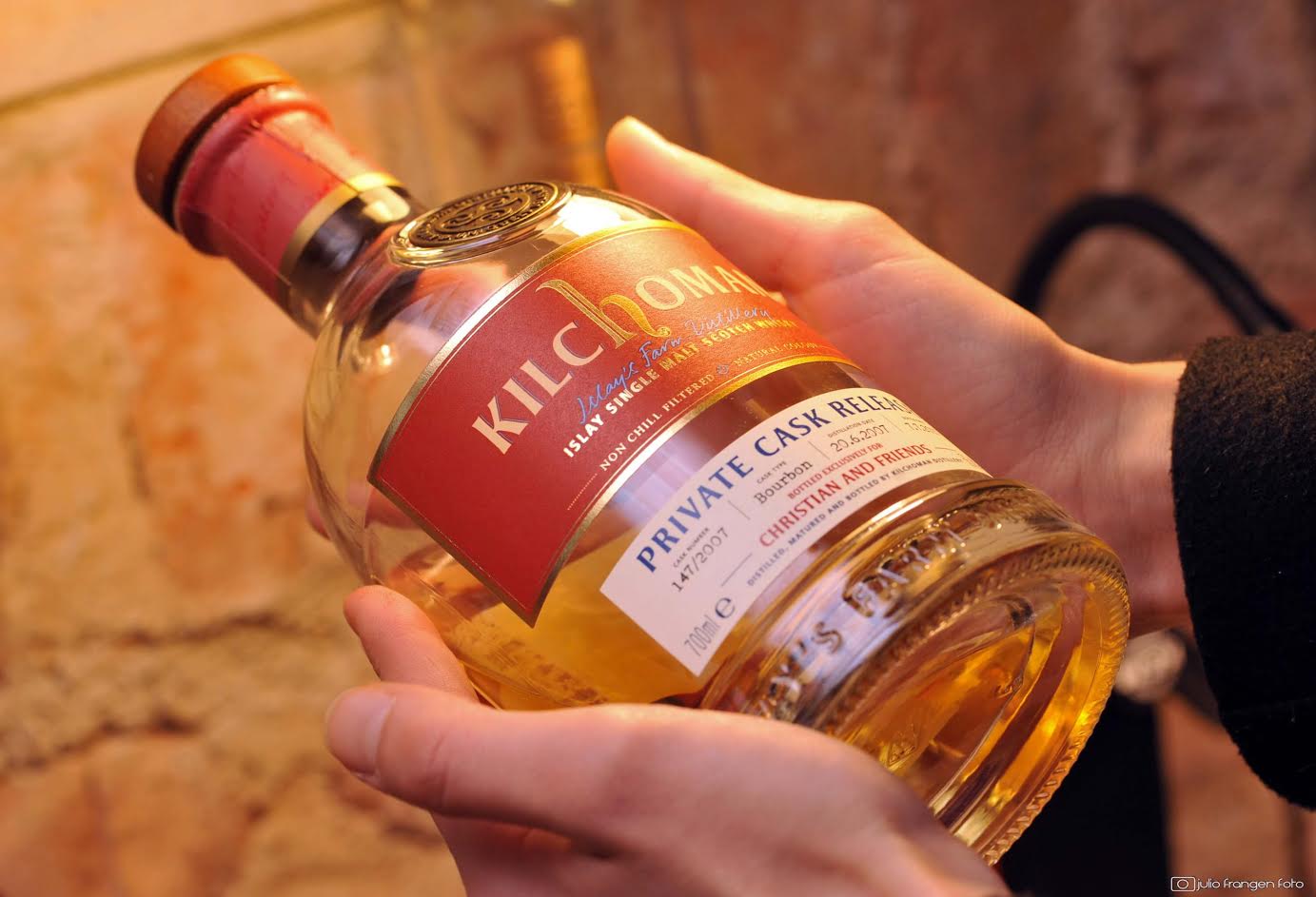
Do you have a particular favourite whiskey?
Well, that is hard to say. Today my favourites are the ones we are having here. But if I have to choose, I would go with some Samaroli edition of Laphroaig. The reason lies in the scent that today whiskeys don't have, for those older whiskeys were produced using different types of yeast and barley.
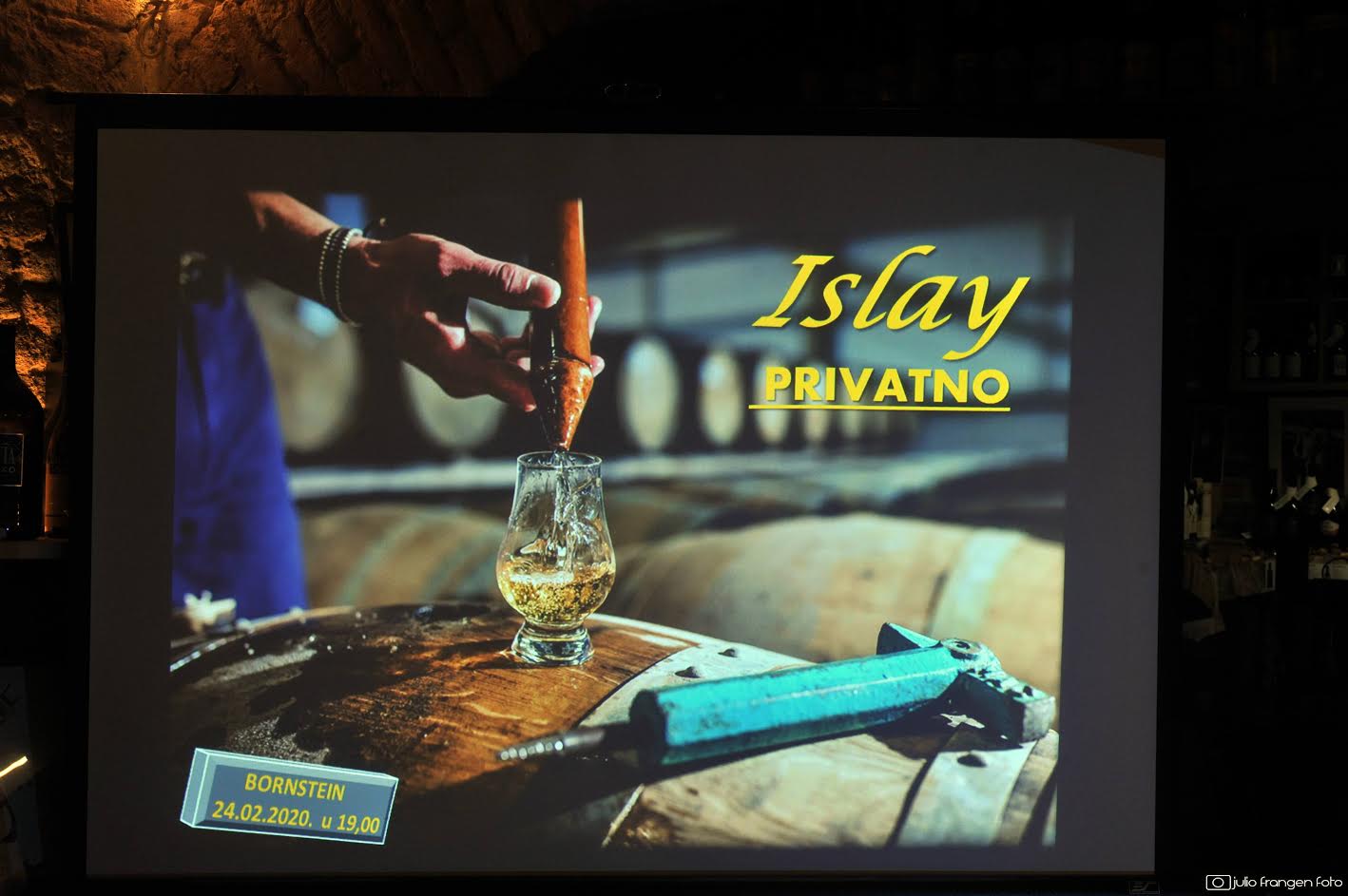
What is the most significant thing for you in whiskey?
Fragrance. You taste whiskey with your nose, mouth, and with the third dimension, which brings you all the flavours that overlap one with another like ocean waves when you swallow the liquor. But the most important thing for me is the fragrance that fills my nose. In this way, I can feel most of the things I like in whiskey.
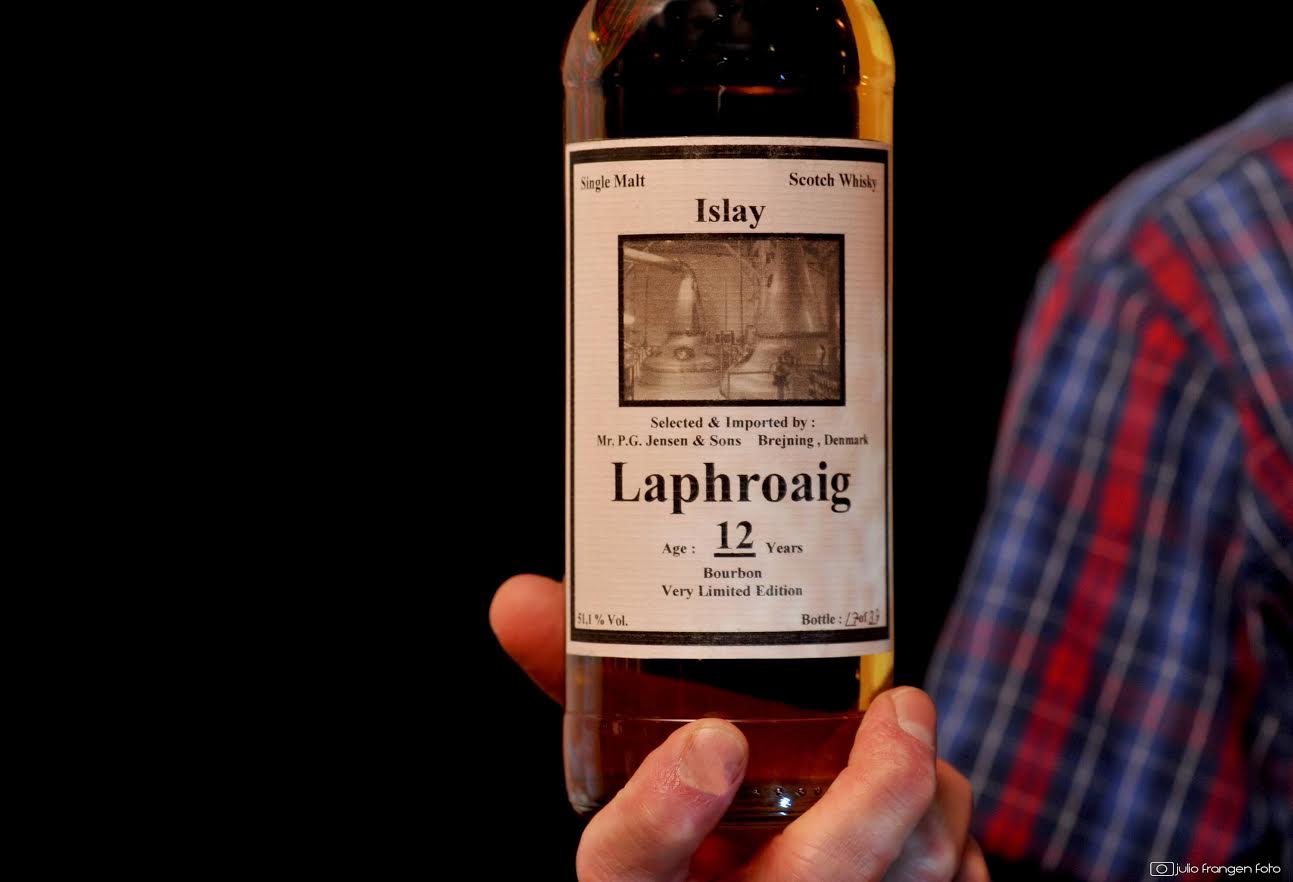
After a short pause, guests returned to their sites and eagerly awaiting the resumption of proceedings. In the end, each guest commented on his favourite number as well as his least favourite at that time. In the late-night hours, which are now cold enough to feel uncomfortable, unless you just tried a couple of whiskeys from the private barrel, I said goodbye to this whiskey world.
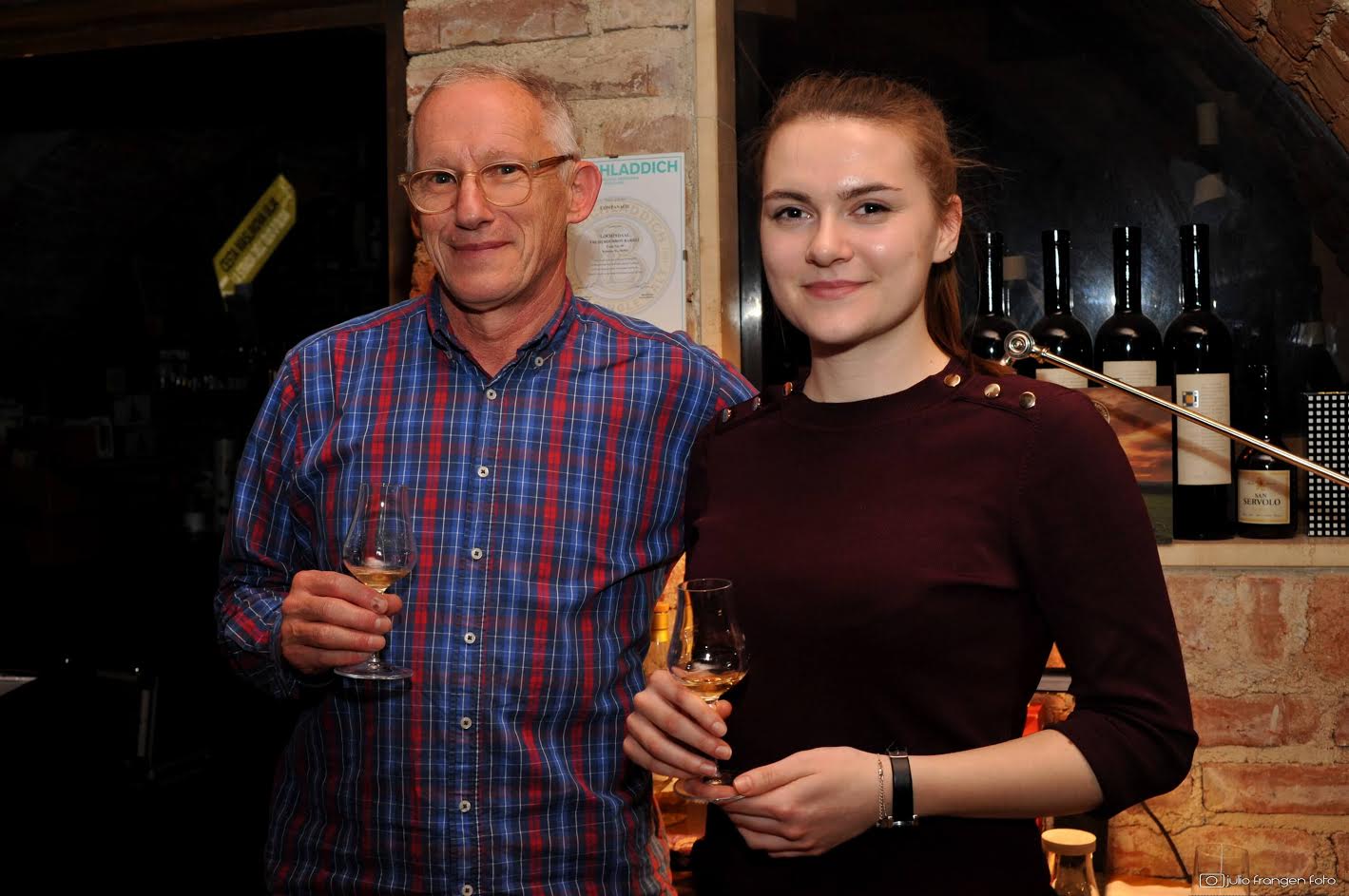
I am genuinely grateful to Tomislav Ruszkowski for the conversation as well as to Julio Frangen for the great photos.
If the story got you interested enough in the world of whiskeys, make sure you visit Whisky Fair and Whiskey Leaks that are held every year in Zagreb.
HDZ: Kovač Submits Over 17,000 Signatures in Leadership Bid
ZAGREB, February 29, 2020 - The candidate for the president of the ruling Croatian Democratic Union (HDZ) party, Miro Kovač, on Friday submitted more than 17,000 signatures supporting his bid, as well as signatures supporting candidates from his team for deputy president and vice-presidents.
The candidate for deputy president, Vukovar mayor Ivan Penava, submitted 16,718 signatures, while the candidates for vice-presidents Milijan Brkić, Tomislav Tolušić and Davor Ivo Stier submitted 16,262, 15,976 and 16,283 signatures respectively.
Kovač said that they had received very positive responses on the ground, adding that party members wanted change knowing that in this way the HDZ could not win the forthcoming parliamentary election, due in the autumn.
"The current HDZ leadership and the current president have no coalition potential. The people in my team have a profile that guarantees that we will be able to win the election for the Croatian parliament and form the next government," Kovac told the press.
He said that they were looking forward to a competition within the party, noting that their colleagues from the rival team, led by Prime Minister Andrej Plenković, were not their opponents but friends whom they wanted to "defeat in a sportsmanlike fashion."
Kovač said that there was place for all the people in the party and that he would not divide the party. He said he was looking forward to competing with the incumbent party president, Andrej Plenković.
Asked if he was satisfied with the number of signatures collected, given that the other team had collected considerably more, Kovač said that they did not want to exhaust themselves collecting signatures, noting that the number of signatures collected for the last presidential election was not decisive.
More HDZ news can be found in the Politics section.
Police Rescue 12 Illegal Migrants in Glina Area
ZAGREB, February 29, 2020 - Police have rescued 12 illegal migrants held in the storage compartment of a camper van in the Glina area, about 80 kilometres south of Zagreb, Sisak-Moslavina County Police said in a statement on Friday.
They included three men, two women and seven children, who were all in bad shape and the police "probably saved their lives", the statement said.
They were all tired and exhausted and were immediately given medical attention. They were found in a camper van bearing Polish licence plates during a police check on Sunday February 23 in the village of Prekopa near Glina.
The migrants, all Iraqi nationals, are two families who entered the country illegally and have announced that they will apply for international protection. Five members of one family have been accommodated at the reception centre for asylum seekers in Kutina, while seven members of the other family have been put up in a similar facility in Zagreb.
The van's driver, a 36-year-old Pole and his 34-year-old female companion were arrested for illegally entering the country and were placed in police custody.
Last Friday, near the village of Mlaka in Jasenovac municipality, about 100 kilometres southeast of Zagreb, 19 Iraqi nationals, including five men, six women and eight children, were caught after illegally crossing the border from Bosnia and Herzegovina. Those in poor condition were taken by ambulance to hospital in Pakrac and Sisak. They all said they would formally apply for international protection, and after being discharged from hospital, they have been accommodated in the reception centre for asylum seers in Zagreb.
More news about migrant crisis can be found in the Politics section.


